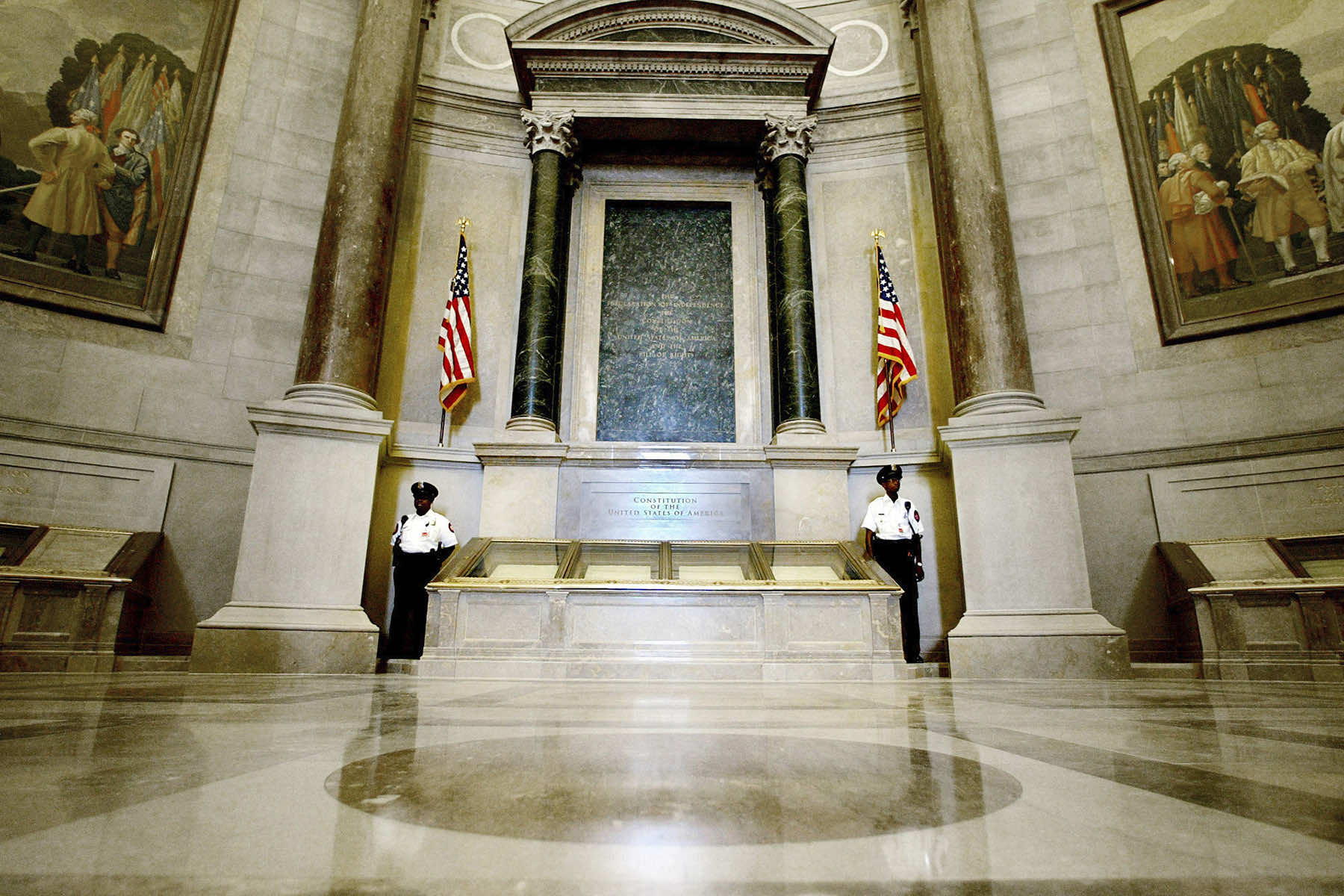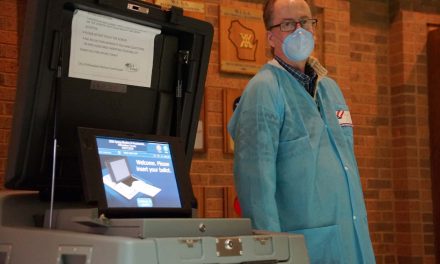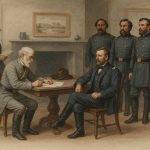
As Trump moves to eviscerate the federal government with astonishing speed, he has wreaked havoc on one agency long known for its nonpartisanship and revered for its mission: the National Archives and Records Administration.
The independent agency and its trove of historic records have been the subject of Hollywood films and the foundation of research and policy. It also holds responsibilities in processes that are crucial for democracy, from amending the Constitution to electing a president.
As the nation’s recordkeeper, the Archives tells the story of America — its founding, breakdowns, mistakes, and triumphs. Former employees of the agency fear it has become politicized.
In February, the convicted criminal and White House occupant abruptly fired the head archivist. Since then, several senior staffers at the Archives have quit or retired. An unknown number of staffers at the agency also have accepted government-offered deferred resignations, often known as buyouts, or been fired because of their probationary status.
WHAT DOES THE NATIONAL ARCHIVES DO?
Everything that happens in the government, domestically and internationally, generates records. The National Archives is their final landing spot.
Among those are the nation’s precious founding documents, including the original Constitution and Declaration of Independence. The collection also includes military personnel files that allow veterans to get benefits, employment and tax records, maps, drawings, photographs, electronic records and more.
The archivist of the United States is the steward of those billions of records, which belong to the American people, said James Grossman, executive director of the American Historical Association.
Besides its museum in Washington, the agency manages field offices and presidential libraries around the country. It also authenticates and certifies new constitutional amendments and houses the Office of the Federal Register, which, among other things, verifies electoral certificates during presidential elections.
WHY DID TRUMP TARGET THE AGENCY?
Trump did not give a public reason for firing archivist Colleen Shogan, but he has long held a grudge against the agency for notifying the Justice Department of his alleged mishandling of classified documents after he left office following his first term.
That 2022 referral led to an FBI search of his Mar-a-Lago estate in Palm Beach, Florida, and a federal indictment against him. A federal judge loyal to Trump dismissed the case last year.
Shogan was not working for the agency at the time. Still, Trump fired her abruptly on February 7 without giving her a reason, she said in a social media post.
The Society of American Archivists said its leadership was alarmed by the news and said the firing with no stated cause “does harm to our nation and its people.”
The president is allowed to dismiss the head of the agency, but none has done so quite as brazenly as Trump. The closest historical precedent was in 2004, when archivist John Carlin resigned and revealed in a letter to a U.S. senator that he had been asked to do so by President George W. Bush’s Republican White House.
The president is required by law to notify Congress of the reasons for the firing, but he is not bound to any timeline.
The Senate committee that has appropriations jurisdiction over the Archives was not told of Shogan’s firing beforehand, nor has it been told of any replacement, a congressional staff member said.
WHAT INFLUENCE COULD A NEW ARCHIVIST HAVE?
The person leading the National Archives has discretion over which records to preserve and how. The risk is that an archivist whose primary loyalty is to Trump could be biased in those decisions, leaving behind a skewed picture of history for future generations, according to several past employees of the Archives who talked to the AP.
That could affect what is preserved of Trump’s insurrectionists from the January 6, 2021, failed coup and attack on the U.S. Capitol, for example, or the current overhaul of federal agencies, said Thomas Brown, whose work at the agency before he retired included some of its early efforts to identify and preserve electronic records.
“It pains me to think that I spent 30 years trying to build something and enhance the reputation of the National Archives to see it pulled down by political ideology,” he said.
The Archives’ duties related to constitutional amendments and Electoral College votes are generally ministerial. But that would not necessarily stop Trump from pressuring a new archivist to serve his interests rather than the law, said Anthony Clark, who oversaw the National Archives as a senior staffer on the House Oversight Committee and authored a book on presidential libraries.
The Office of the Federal Register reviews the electoral certificates sent in from the states. The archivist would not have the authority to force the office to reject a slate of electors but could disrupt the process, said Daniel Weiner, director of the Brennan Center’s elections and government program.
“And anything that shows disruption and uncertainty in the process is not helpful for our democracy and is dangerous,” Weiner said.
A Trump-aligned archivist might also be less inclined to enforce the Presidential Records Act or ask questions if Trump leaves office with troves of classified documents, said Norm Eisen, executive chair of the State Democracy Defenders Fund.
Jim McSweeney, who worked for the Archives for about 40 years before retiring in 2022, said the agency’s role is to preserve all historically valuable records, “good, bad and ugly, warts and all.”
“They can’t be whitewashed. They happened,” he said. “And they need to be present for forever, so that historians and regular citizens can learn and study these events.”
WHY TRUMP PLANS REWRITE HISTORY?
Trump’s targeting of the National Archives is not just about bureaucratic control, it is part of a broader effort to rewrite history and bury evidence of his past criminality as President. His history of obstructing investigations and destroying records has been well documented, from allegedly mishandling classified documents to attempting to suppress records related to the January 6 insurrection.
With direct influence over the Archives, Trump has a pathway to erase or manipulate the official record of his presidency, shielding himself from future scrutiny. A Trump-aligned archivist could selectively retain or discard records, diminishing access to key documents that expose his abuses of power, legal violations, and efforts to subvert democracy.
The archives serve as an institutional safeguard against authoritarian revisionism. Yet, Trump’s interference is designed to turn it into a tool for his political agenda, one that distorts the truth, legitimizes his false narratives, and erases inconvenient facts.
By undermining the agency responsible for maintaining America’s historical record, Trump can consolidate power and also ensure that future generations inherit a history curated to serve his corrupt interests rather than the truth.















